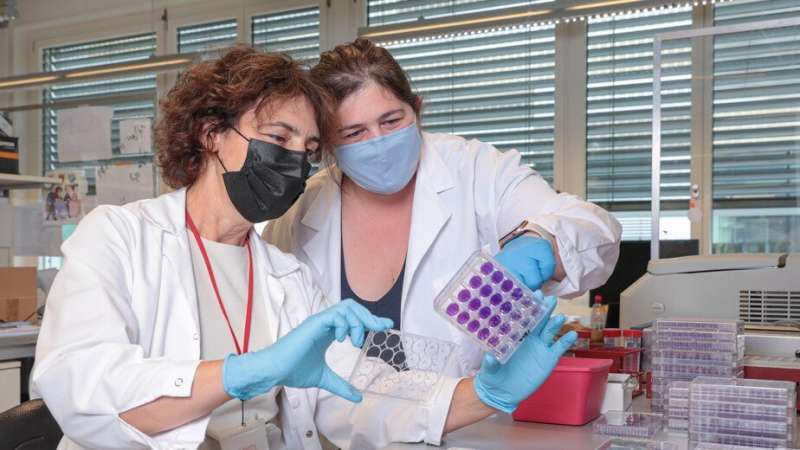
The Lausanne University Hospital (CHUV) and EPFL teamed up to develop a new test that’s sensitive enough to measure the amount of SARS-CoV-2 neutralizing antibodies present in the bloodstream. The scientists’ discovery, published in the prestigious Science Translational Medicine, opens promising new avenues for tracking immunity acquired by infection or vaccination. With this test, experts can measure the level of protection against variants of the virus and monitor their prevalence over time.
Blood tests detect the presence of antibodies against an infectious agent, such as SARS-CoV-2, in a patient’s bloodstream. Some antibodies simply indicate whether the individual has been previously exposed to either the virus or a vaccine, while others—known as neutralizing antibodies—provide immunity against infection or re-infection.
In the case of SARS-CoV-2, neutralizing antibodies work by interfering with the virus’ spike protein, which is the key that the virus uses to enter respiratory system cells by binding to the ACE2 receptors on the cells’ surface.
The research was carried out by the teams at the CHUV’s Service of Immunology and Allergy, which are led by Prof. Giuseppe Pantaleo and Dr. Craig Fenwick, and by EPFL’s Laboratory of Virology and Genetics, headed by Prof. Didier Trono and Dr. Priscilla Turelli. The new antibody test is a highly sensitive and extremely accurate way of measuring how well a sample of blood serum can prevent the spike protein in its trimeric form—as found on the surface of the SARS-CoV-2 virus—from binding to ACE2 receptors. It completes the diagnostic arsenal in development at EPFL, which also includes the microchip device presented two months ago.
Source: Read Full Article
